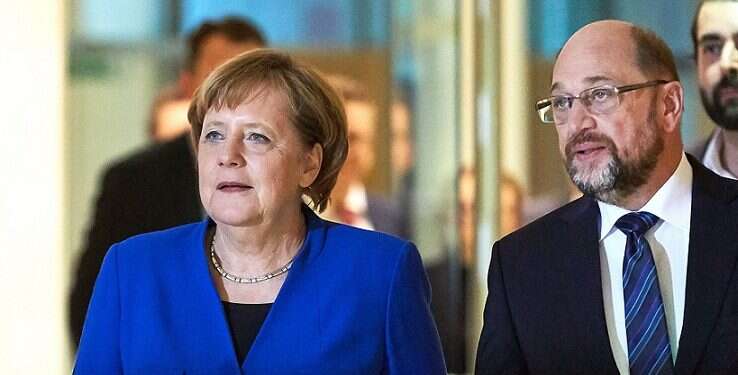Germany's Christian Democratic Union Party, headed by Chancellor Angela Merkel, and the country's Social Democratic Party, headed by Martin Schulz, agreed on a blueprint for coalition negotiations on Friday.
Such a German coalition has stoked fears in Israel, as the blueprint fails to mention neither Germany's unique connection with Israel nor the latter's Jewish character – points that were expressly stated in the basic guidelines that formed Merkel's two previous governments.
In addition, the blueprint includes an article dealing with the military, stating an opposition to "acts of targeted killings by automatic weapons systems," as well as a commitment to develop European drone technology.
This article may hinder a deal between Israel and Germany for the purchase of Israeli drones, which was suspended last summer after sudden opposition by the Social Democrats.
Despite these worries, the blueprint does detail a foreign policy in which Germany will not support the warming relations between Turkey and the European Union so long as Ankara continues violating human rights.
A poll conducted by weekly German journal Der Spiegel last week found that 49.7% of the German population is unhappy with the agreement reached between the two largest parties. Only 35.8% of those asked expressed support for the budding coalition deal.
At the moment, the fate of the future German government depends on Social Democrats, who will be required to decide if they support the coalition blueprint. Many in the party oppose the creation of another large coalition headed by Merkel. This comes despite the fact that the Social Democrats succeeded in getting many of their demands, including family reunification for Syrian refugees that is slated to begin this year.




